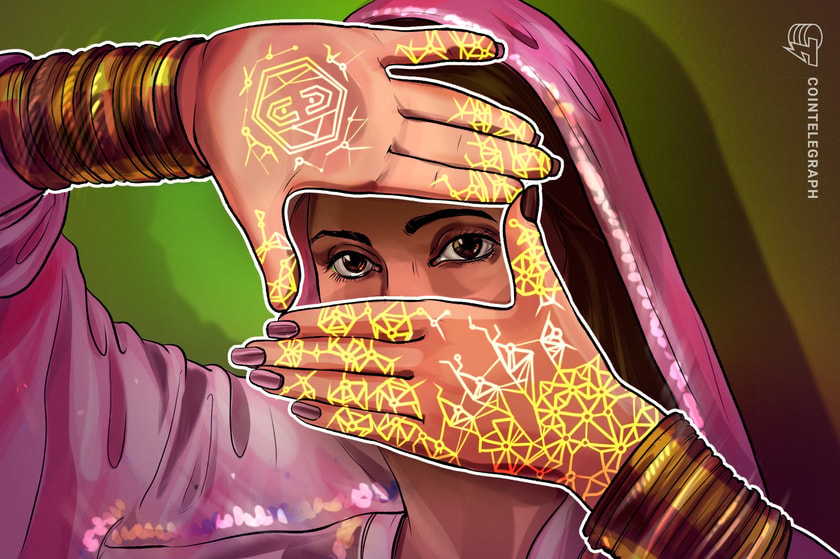Cryptocurrency is picking up as an instrument for tyranny
Proponents paint Bitcoin (BTC) and other cryptocurrencies as antidotes to totalitarian governments and central banks. Simultaneously, international corporations and startups alike have designed blockchain platforms and products that could be used on behalf of totalitarian governments and central banks.
Microsoft body activity data
One example is Microsoft, which applied for a patent for a cryptocurrency system using body activity data. As part of the cryptocurrency mining process, the cryptocurrency system gives a task to your device, instructing you to complete a “human body activity.”
A sensor in the user’s device registers the body activity, and then the cryptocurrency system rewards the user. “The sensed body activity is associated with the received task and transmits the generated body activity data to a system or network, which verifies the body activity data to award cryptocurrency.”
It’s reminiscent of the Justin Timberlake movie In Time, where a future society uses time from one’s lifespan as its primary currency, with each individual possessing a clock on their arm that counts down how long they have to live. When the clock hits zero, they’re dead.
SmartKey
Olsztyn, Poland leveraged the Ethereum blockchain to run a trial of SmartKey, a bridging technology that connects blockchain technology to the lock to your home, for example.
They say it’s to “aid in police, fire, and ambulance services” (read: for your safety). SmartKey allows emergency crews to enter any building in the city without needing to find the keyholder or wait for permission.
Related: Blockchain Association policy head: US shouldn’t compete with China’s CBDC using surveillance tools
“The need for our rescue services to perform their duties without obstruction is a delicate one. The use of blockchain and SmartKey technology seems to be like the perfect solution, giving reassurance to building owners and inhabitants, but also freedom for our emergency services,” according to Gustaw Marek Brzezin, the marshall of the Warmińsko-Mazurskie Voivodeship in which Olsztyn is located.
As any student of political science knows, the bedrock of any constitution is the freedom for our emergency services!
Central bank digital currency (CBDC)
The European Central Bank (ECB) noted in a white paper that it would be possible to track every single CBDC transaction in a nation. All transactions under such a regime would be known to the central bank and anyone with whom the bank chooses to share information.

With a digital currency, central banks can impose restrictions on the holding of money. The ECB has discussed capping the amount a person can hold, limiting the time a person can hold an amount of money, and imposing negative interest rates on amounts that the bank deems excessive. Similar functionality is present in the Bank of China’s CBDC. Dystopian policies can be implemented more easily with a digital currency — including negative interest rates and more.
Mass surveillance
Ledger founder Pascal Gauthier sees the European Union’s Transfer of Funds Regulation bill as little more than mass surveillance.
“Imagine you have a wallet, your leather wallet, and you’ve got cash in it. Now every time that you’re going to pay in cash somewhere, you’re going to have to flash your ID… and they’re going to note your name,” Gauthier said. “This is not the world I want to live in.”
Related: US agencies warn against the influx of North Koreans in IT and crypto jobs online
He added, “Some groups in the European Parliament have some very specific and dogmatic agenda … [and are] using excuses to ban Bitcoin and cryptocurrencies as much as possible. Rumors they’ve heard. Like, oh, I heard it’s for money launderers…”
World Economic Forum (WEF)
The Davos-based WEF, which is best known perhaps for bringing humanity “The Great Reset,” notes in a blog post on its website that blockchain is capable of bringing about an industrial revolution in which the biological, technological and physical worlds. It’s going to do that by enabling the tracking of almost anything, including food and medical supplies, such as vaccines.
It’s “a shared, immutable ledger that facilitates the process of recording transactions and tracking assets in a business network,” the WEF notes, citing an IBM assessment of blockchain tech. “An asset can be tangible (a house, car, cash, land) or intangible (intellectual property, patents, copyrights, branding). Virtually anything of value can be tracked and traded on a blockchain network, reducing risk and cutting costs for all involved.”
As the WEF and IBM note, blockchain makes a world of ubiquitous surveillance possible.
Justin O’Connel is the founder of Narracomm, GoldSilverBitcoin, Cryptographic Asset and THCist. He has been a Bitcoin-focused entrepreneur since 2012.
This article is for general information purposes and is not intended to be and should not be taken as legal or investment advice. The views, thoughts, and opinions expressed here are the author’s alone and do not necessarily reflect or represent the views and opinions of Cointelegraph.









